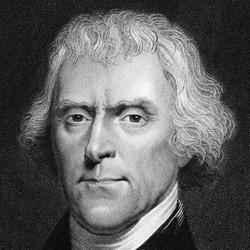1. What did the issuing of the Monroe Doctrine express from an American Perspective post War of 1812?
From an American perspective post War of 1812, the Monroe Doctrine expressed that the northwestern coast of North America was independent and free of any further colonization. The idea of neutrality was still implied, but president James Monroe asserted that European powers were not to colonize in North America.
2. What was the Secretary of State Adams' hope when he wrote the Monroe Doctrine?
When he wrote the Monroe Doctrine, Adams hoped that there would be no further colonization in the western hemisphere, and that America would stay away from foreign interests that would get it into trouble. He hoped that there would be peace and safety.
3. What is the key phrase in the entire document that you need to remember as the cornerstone of American foreign policy?
"With the existing colonies or dependencies of any European power we have not interfered and shall not interfere. But with the Governments who have declared their independence and maintain it, and whose independence we have, on great consideration and on just principles, acknowledged, we could not view any interposition for the purpose of oppressing them, or controlling in any other manner their destiny, by any European power in any other light than as the manifestation of an unfriendly disposition toward the United States."
Wednesday, October 29, 2014
Tuesday, October 14, 2014
Columbus Blog #8
Christopher Columbus should be considered as a villain rather than a hero for several reasons. Although he is praised for discovering America, his flaws override this. As he arrived in the new world, his treatment to natives was extremely unreasonable. He demonstrated brutal qualities by torturing and wiping out the population of Arawak Indians. His greed and selfishness exemplified along the hunt for gold caused him to threaten Indians if they did not bring him gold. He completely transformed the lives of Indians by forcing them to participate in the encomienda system and mining for gold in harsh conditions. He did discover a vast continent, but he handled the encounter with Indians incorrectly, and thus he should be considered a villain.
Tuesday, October 7, 2014
LAD #9: Jefferson's First Inaugural Address
Summary:
Thomas Jefferson is appreciative of being elected and being given such a responsibility. He encourages the Constitution to remain a basis for freedom and policies for Americans. He states how the majority will prevail, but the minority must be given equal respect and gratitude. Like other national leaders, he enforces the concept of national unity. Jefferson supports the fact that Americans have an opportunity to create and live their own free lives in a blossoming nation. He stated how government holds the duty of protecting our rights and civil liberties. Jefferson ends the address by admitting that every citizen will not be satisfied with his policies, but he will do his best to provide for the nation.
Thomas Jefferson is appreciative of being elected and being given such a responsibility. He encourages the Constitution to remain a basis for freedom and policies for Americans. He states how the majority will prevail, but the minority must be given equal respect and gratitude. Like other national leaders, he enforces the concept of national unity. Jefferson supports the fact that Americans have an opportunity to create and live their own free lives in a blossoming nation. He stated how government holds the duty of protecting our rights and civil liberties. Jefferson ends the address by admitting that every citizen will not be satisfied with his policies, but he will do his best to provide for the nation.
Subscribe to:
Posts (Atom)


